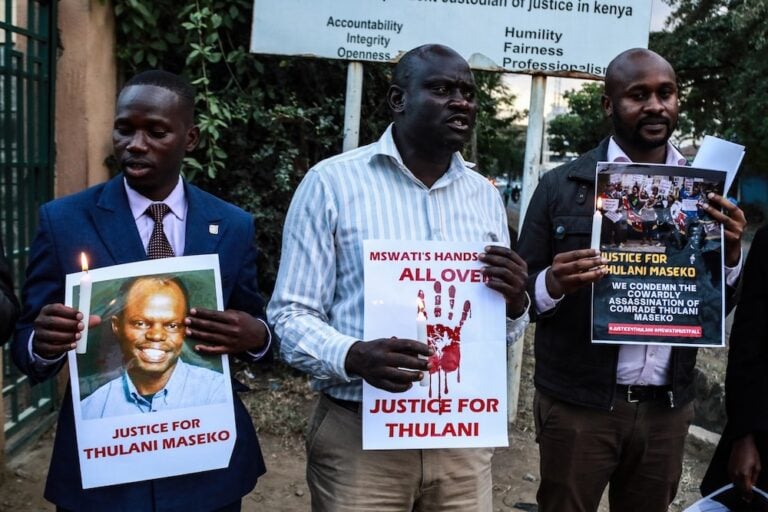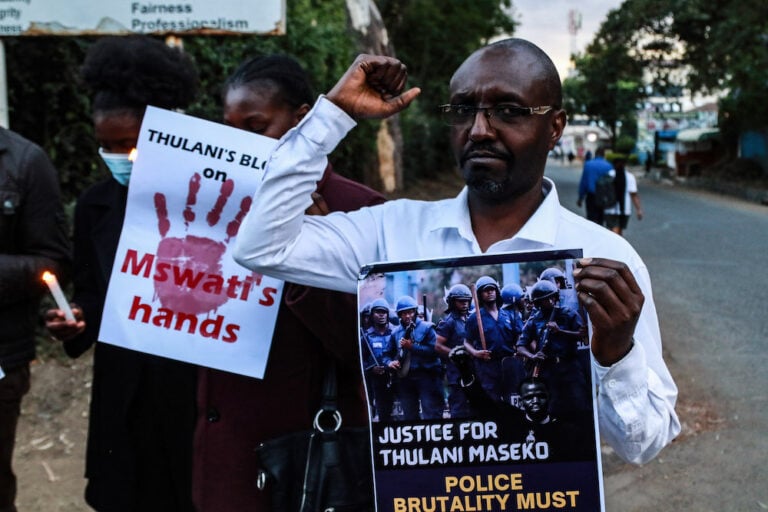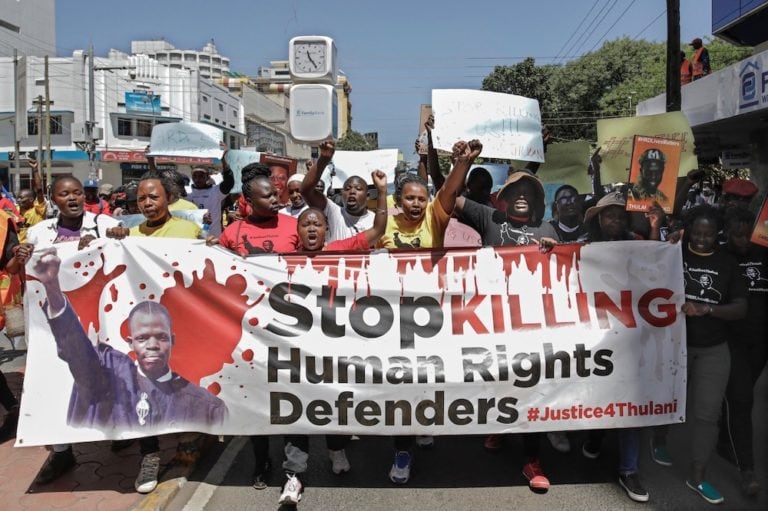(MISA/IFEX) – On 12 October 2002, security forces barred five journalists from the “Times of Swaziland” and the “Swazi Observer” and a foreign freelance reporter from covering the proceedings of a prayer meeting organised by different political and social groups in Swaziland. The prayer meeting, termed Justice for Peace, was organised in memory of families […]
(MISA/IFEX) – On 12 October 2002, security forces barred five journalists from the “Times of Swaziland” and the “Swazi Observer” and a foreign freelance reporter from covering the proceedings of a prayer meeting organised by different political and social groups in Swaziland.
The prayer meeting, termed Justice for Peace, was organised in memory of families that were evicted from the Macetjeni (south-eastern Swaziland) and KaMkhweli areas in October 2000.
One of the barred journalists, Phinda Sihlongonyane of “The Observer”, told MISA-Swaziland that the law enforcement unit was comprised of the Royal Swaziland Police (RSP), the Umbutfo Swaziland Defence Force (USDF) and the Correctional Service Operational Support Service Unit (OSSU), and was led by Station Commander Agrippa Khumalo, of the Lubombo region.
Sihlongonyane reported that the security officers had mounted roadblocks on all roads leading to Macetjeni and KaMkhweli. Upon recognising her and her colleagues as journalists, the commander instructed junior officers to search the journalists and turn them away. The journalists were searched and escorted by the security officer to a certain point, after which they took some photographs. Upon seeing this, one of the security officers turned back and forcefully took a digital camera from one of the journalists, removing the memory card in the process. The camera was finally returned after a long exchange.
The five journalists and driver involved in the incident were Sihlongonyane, Ackel Zwane, formerly a “Times of Swaziland” reporter, now working for “The Observer”, “Observer” reporter Thabile Mdluli, “Observer” photographer Simon Jele, foreign press reporter Bheki Matsebula and “Observer” driver Jethro Jele.
In a related incident, Zwane was severely beaten by police. According to the newspaper, his camera and notebook were also taken from him. He was forced into a security vehicle and driven to a junction towards the Swazi capital, Manzini, where he was dropped off and his belongings were returned to him.
MISA-Swaziland condemns the harassment and intimidation practiced by the security forces against journalists who were merely carrying out their duties. MISA-Swaziland holds the opinion that this action is a clear indication that journalists in the country do not have the liberty to freely gather and disseminate information in the public interest.
Background Information
In October 2000, some 200 villagers in Macetjeni and KaMkhweli were evicted from their homes at gunpoint by soldiers, apparently because they refused to accept King Mswati III’s brother, Prince Maguga, as chief. They were left in the countryside without shelter or other basic necessities. The families are now staying in a refugee camp in Amsterdam, in the Mpumalanga province.
The families have since taken their matter to the High Court, where they won their case, but the government continues to harass them. The mere fact that the security forces continue to ignore the court order makes it clear that respect for the rule of law does not exist in Swaziland.


